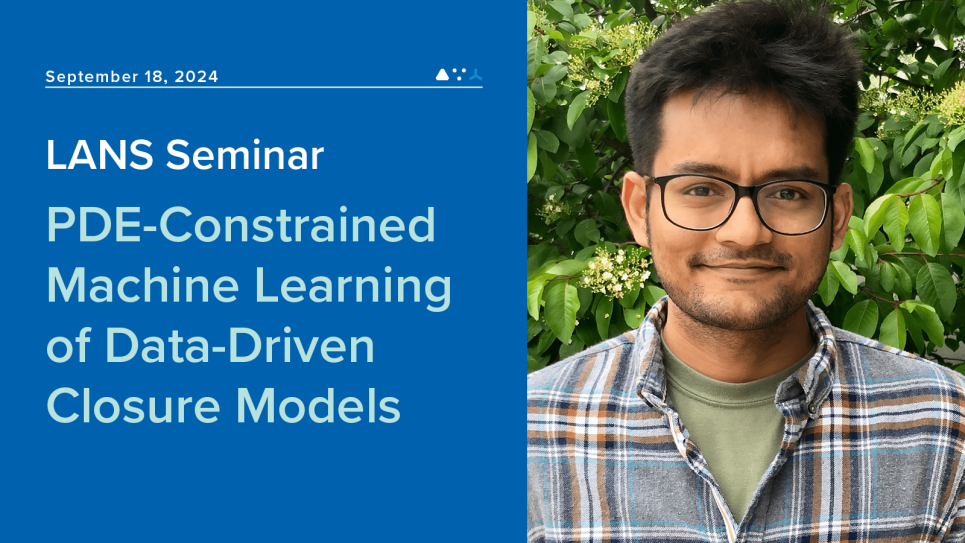
PDE-Constrained Machine Learning of Data-Driven Closure Models
Closures are frequently necessary when constructing predictive models of complex multiscale dynamical systems under severe computational budget limitations. These models model the effect of missing information - for example, when all spatial or temporal frequencies cannot be resolved on a given computational grid when numerically simulating a partial differential equation. In this talk, I will go through past and present efforts to leverage data-driven methods for building improved closure models. I will pay particular attention to two approaches to constructing these models: 1) Using direct numerical simulation (i.e., high-fidelity ground truth) data that is used to fit these models and 2) using an online-learning paradigm where closures are trained through trajectory matching via the use of a differentiable physics simulator. In addition to comparing and contrasting these two approaches, I will also provide some novel developments, from the perspective of software engineering, that connect these algorithmic contributions to real-world turbulence modeling applications. A passing note will also be made of the challenges involved with computing sensitivities of chaotic systems.
Bio: Romit Maulik is an Assistant Professor in the College of Information Sciences and Technology at Pennsylvania State University (Penn State). He is also a co-hire in the Institute for Computational and Data Sciences at Penn State and a Joint Appointment Faculty at Argonne National Laboratory. He obtained his PhD in Mechanical and Aerospace Engineering at Oklahoma State University (in 2019) and was the Margaret Butler Postdoctoral Fellow (from 2019-2021) before becoming an Assistant Computational Scientist at Argonne National Laboratory (from 2021-2023). His research has been funded by the DOE, NSF, ARO, Argonne and Los Alamos National Laboratories and he is also a member of RAPIDS, a DOE SCIDAC Institute for Artificial Intelligence. His group studies high-performance scientific machine learning algorithm development with applications to various nonlinear dynamical systems such as those that arise in fluid dynamics, weather and climate modeling, nuclear fusion, and beyond. He is an Early Career Awardee from the Army Research Office.
See all upcoming talks at https://www.anl.gov/mcs/lans-seminars